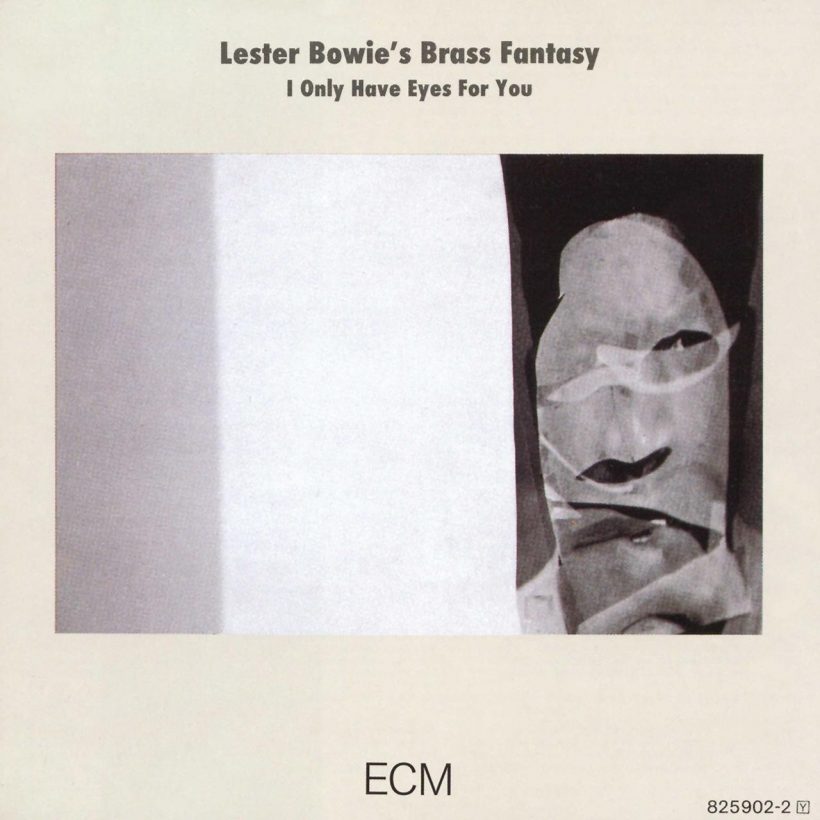Lester Bowie’s Brass Fantasy: An Unexpected ECM Pop Venture
The story behind an unexpected pop venture that brought ECM Records into unfamiliar territory.

By the mid-’80s, ECM Records was widely regarded as one of the best labels in jazz. Its roster included soon-to-be legendary players like pianist Keith Jarrett and guitarist Pat Metheny as well as stellar mid-career virtuosi like drummer Jack DeJohnette, bassist Dave Holland, and guitarist John Abercrombie, as well as avant-garde stalwarts like the Art Ensemble of Chicago and Wadada Leo Smith. Even more striking, though, was the label’s signature sound. The sonics of ECM releases were pristine, as if the music was being created in a formal setting like a concert hall or museum rather than a nightclub or a living room. ECM recordings were unmistakably art; they didn’t pander to public tastes.
That’s why it was such a surprise – if not an outright shock – that in 1986, one of the most played recordings from ECM was an exuberant and reverent cover of “Saving All My Love,” a song that Whitney Houston had made a platinum-selling and Grammy Award-winning hit the year before.
Listen to Lester Bowie’s Brass Fantasy perform “Saving All My Love.”
This was uncharted territory for ECM. But not for the song’s creator, trumpeter Lester Bowie. Bowie was a member of the Art Ensemble of Chicago, and he took the group’s credo, “great Black music from the ancient to the future,” to heart in unique ways. For ECM, Bowie had played on the group’s Nice Guys, Full Force, and Urban Bushmen, in addition to a stellar sideman turn on Jack DeJohnette’s New Directions. Bowie was also responsible for two recordings of his own, The Great Pretender in 1981 and All the Magic/The One and Only two years later. All of these fit neatly on the label.
In 1985, however, Bowie introduced his band Brass Fantasy to the label with I Only Have Eyes for You and broached new sonic territory for the imprint. Brass Fantasy was comprised of one drummer and eight horns: four trumpets, two trombones, French horn, and tuba. The lineup recalled the famously creative marching bands of Historically Black Colleges and Universities as well as Army fife and bugle corps, but the repertoire was distinctly Lester. In addition to “Saving All My Love,” the band covered “Crazy,” the Willie Nelson classic often associated with Patsy Cline, and “Blueberry Hill,” the Fats Domino hit.
A dual musical personality
In a 1995 interview with Ted Panken at WKCR-FM, Lester Bowie explained that his background in R&B helped form the band’s personality. “When we first started, I’d play with the Art Ensemble one night, and Jackie Wilson the next night, then back to the Art Ensemble and an AACM concert [the Association for the Advancement of Creative Musicians, the Chicago-based collective that nurtured many of the city’s musical revolutionaries], and then off on the road with Jerry Butler or Joe Tex or Rufus Thomas. I worked with just about all of the R&B people during that period.” Bowie auditioned on three separate occasions to be in James Brown’s band.
Despite his work in R&B, his trumpet style was jazz, through and through. His playing was marked by smears, blats, and growls. Trumpeter and composer Hugh Ragin said of Bowie’s style, “This opened my eyes to what can be done with sound pictures for solo trumpet.” He looked the part too: With the Art Ensemble, he usually wore a white lab coat on stage, a vital part of their elaborate, Afrocentric cosplay.
The legacy of Lester Bowie’s Brass Fantasy
Lester Bowie and Brass Fantasy left ECM after 1986’s Avant Pop, but they continued to make popular music a cornerstone of their rambunctious repertoire. Subsequent recordings included covers of the Godfather’s “Papa’s Got a Brand New Bag,” Bobby McFerrin’s “Don’t Worry, Be Happy,” and TLC’s “Waterfalls.”
Bowie’s championing of popular music became an important part of jazz throughout the ‘80s. Although the dominant trend in the genre was the rise of the neo-traditionalists like Wynton Marsalis, those outside the mainstream made thrilling music that often embraced music that had ruled the charts. The World Saxophone Quartet, a group often regarded on the same elite tier as the Art Ensemble of Chicago, did a recording of soul classics, and piano great Mal Waldron covered legendary songs by Michael Jackson and Stevie Wonder.
Bowie’s style and approach remain influential today. It’s easy to hear Bowie in the work of leading trumpeters like Ambrose Akinmusire and Jaimie Branch. Trumpeter Dave Douglas who founded the group Brass Ecstasy as a tribute to Brass Fantasy said of Bowie, “I feel like Lester gave me permission to do a lot of what I do – to explore sound, to explore genre, to cultivate surprise, and to transform oneself from night to night. And to do it gracefully with soul and humor.”
Listen to Lester Bowie’s Brass Fantasy perform “Saving All My Love.”












